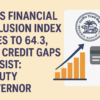A good leader has multiple skills, and they can broadly be divided into hard skills and soft skills. In these volatile and trying times, what skills are leaders leveraging, what is the outcome, what skills are they planning to develop further, and how? This is what Banking Frontiers is studying from an interaction with 5 leaders from India’s booming NBFC sector:
· Kalpanaa Sankar, MD, Belstar Microfinance
· Sanjay Agarwal, MD & CEO, Ambit Finvest
· Vivek Tiwari, MD, SATYA MicroCapital
· Anilkumar SG, CEO, Samunnati
· Kamlesh Gandhi, Chairman & MD, MAS Financial Services
Smriti Pandey: What one hard skill would you like to improve/acquire and what one soft skill would you like to improve/acquire during 2025? What motivates you to improve/acquire these skills?
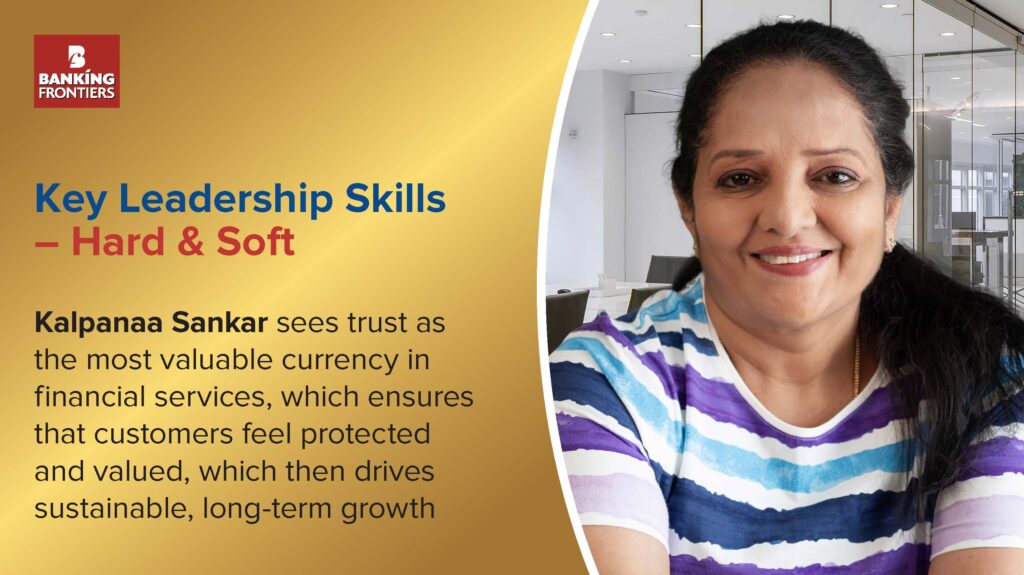 Kalpanaa Sankar: In 2025, I aim to deepen my expertise in AI adoption, as artificial intelligence is set to transform decision-making, risk assessment, and operational efficiency in the financial sector. I would also like to refine my ability to communicate concisely and effectively on digital platforms. As communication channels evolve, ensuring clarity and impact across digital media is becoming increasingly important. The motivation behind acquiring these skills comes from the industry’s shift towards technology-driven operations and stakeholder engagement in a digital-first world.
Kalpanaa Sankar: In 2025, I aim to deepen my expertise in AI adoption, as artificial intelligence is set to transform decision-making, risk assessment, and operational efficiency in the financial sector. I would also like to refine my ability to communicate concisely and effectively on digital platforms. As communication channels evolve, ensuring clarity and impact across digital media is becoming increasingly important. The motivation behind acquiring these skills comes from the industry’s shift towards technology-driven operations and stakeholder engagement in a digital-first world.
Sanjay Agarwal: On the hard skill front, it would be Artificial Intelligence. Technology continues to disrupt the financial lending ecosystem, reshaping how we operate, engage, and deliver value. To stay competitive, staying ahead of emerging tech trends is not optional, anymore; it is imperative. AI, in particular, holds transformative potential. While we’ve already implemented niche use cases, we’re now actively exploring more holistic, end-to-end AI-driven solutions that can reimagine our legacy systems and redefine core processes – enhancing speed, accuracy, and customer experience across the board.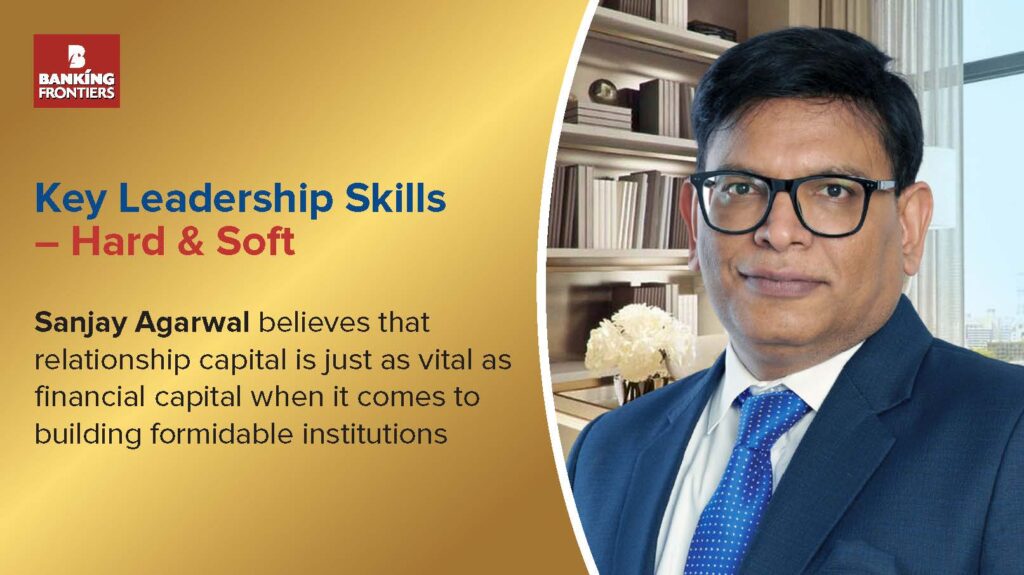
As regards soft skills, impactful storytelling is one skill I would like to hone further. Whether it’s inspiring teams or engaging external stakeholders, I believe the ability to communicate complex ideas with clarity and conviction is a powerful leadership tool. History shows us that great leaders are often great storytellers – they don’t just inform, they inspire and drive action.
Vivek Tiwari: In 2025, I am focused on advancing my capabilities in strategic capital raising and efficient fund disbursement structuring. With SATYA’s growing footprint, it’s vital to ensure funds are raised through diverse, responsible channels and disbursed quickly, transparently, and securely – particularly to underserved regions. Strengthening this skill will also help accelerate response in crisis scenarios and reinforce SATYA’s institutional agility.
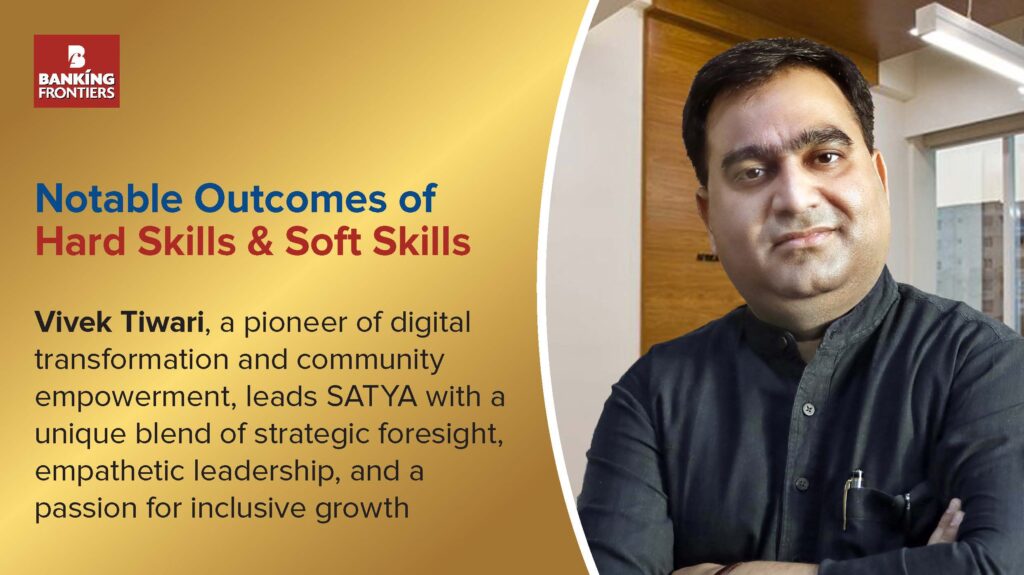
On the soft skill side, I aim to nurture a deeper culture of creativity and innovation across the organization. Encouraging cross-functional collaboration, idea-sharing, and experimentation helps keep SATYA ahead of the curve. My motivation stems from a firm belief that a progressive institution must continually reinvent itself – not just through technology, but through bold, people-led ideas that respond to evolving social needs.
Both these goals are aligned with ensuring SATYA remains a role model in the microfinance industry – not just in numbers, but in impact, adaptability, and values.
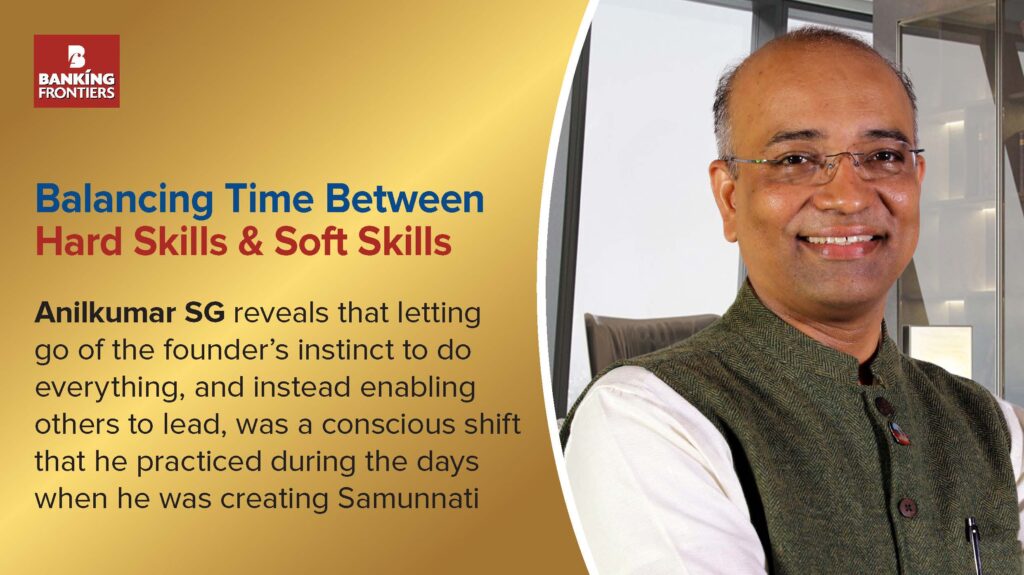
AnilKumar SG: Hard Skill: Agriculture, by nature, involves numerous variables like weather patterns, soil health, market access and consumer demands, which interact in non-linear ways. As we move toward more digitized solutions, AI and data-driven tools will become central to how we understand and address challenges at scale. AI can help us identify inefficiencies in agricultural value chains, enabling more effective interventions that save costs, reduce waste, and increase farmer profitability. Through data science, we can personalize financial products and services to meet the unique needs of different farmer collectives, unlocking greater access to capital and resources. This knowledge of applied data science will be key in shaping Samunnati’s next leap. Predictive analytics, AI-powered decision support systems, and data-driven policymaking will not only streamline operations but also create more inclusive, impactful solutions for the agri community. AI and data science will enable us to make smarter decisions, faster – helping us to scale Samunnati’s impact.
Soft Skill: I aim to focus on public influence to amplify the voices of smallholder farmers, particularly in districts facing significant development challenges. Conveying the impact of our work in these areas helps us bridge the gap between rural India and mainstream economic discourse. This approach will highlight the narrative of inclusion, ensuring that the challenges and successes of farmers in underdeveloped regions are recognized in broader policy and economic conversations. This will be crucial in advocating for economic inclusion and sustainable development, ensuring our efforts create lasting, positive change where needed most.
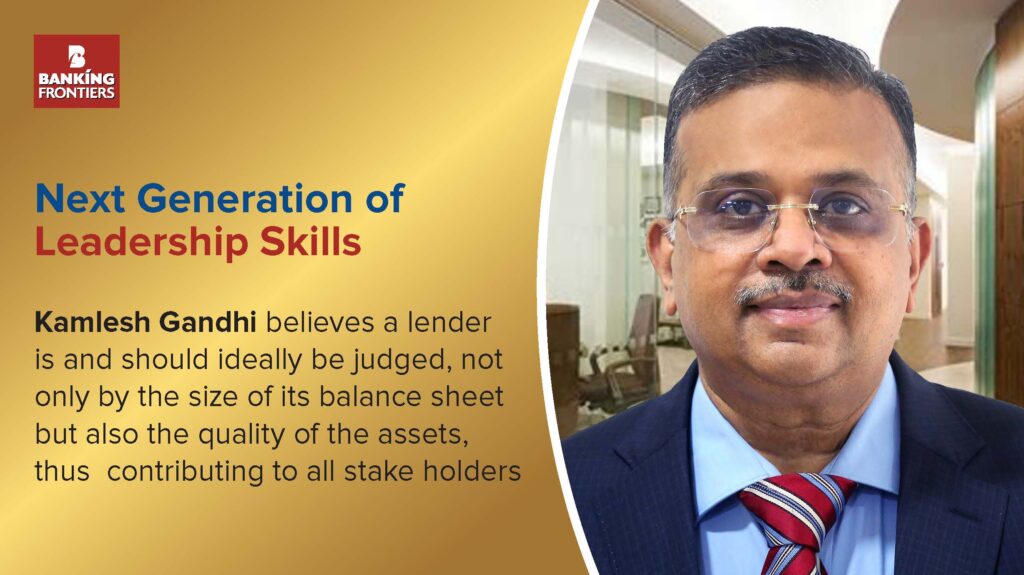
Kamlesh Gandhi: Hard skill would be technologies related to finance and soft skill would be to implement the understanding that the day best lived is life well lived.







